Standoff on the web

Technology is dominated by two types of people: those who understand what they do not control, and those who govern those in which they do not understand.
Murphy's Law
When the trend of the digital economy flies to you from every media and literally from every thing related to IT, it is logical to think about the confrontation on the Web, which extends from the usual disputes on any subject, colored by ambition and personal ego, to the unlawful and even struggle without rules in the name of anything, and by any means. The latter could even be called digital politics, bearing in mind “according to Lenin” that “politics is the concentrated expression of the economy”. However, in the digital implementation of these concepts, it seems that everything is exactly the opposite. As long as the digital economy is neither shaky nor unfolding under the banner of Industry 4.0, digital politics (or rather even digital confrontation) not only already exists, but has been used in practice for a relatively long time, refuting the truths of 100 years ago. What does the Internet say about this?
Those who have not just trumpeted the “great potential” of IT in the sphere of politics and public life are scientists and elected officials, politicians and professionals. The idea of a technological gap with the past - and the end of politics, as we know it, came to the people with the first browser in 1994, when politicians and activists began to go online. The first negative consequence of the rapid development of information and communication technologies, including the Internet, was the emergence of new forms of international conflicts - right up to information and network wars.
There are wars - there is a struggle with alien content, there is digital diplomacy, digital protest movement, digital immigration policy, and, it seems, non-political (but in fact very political) Internet services for collecting electorate and financial resources for political goals, and political social networks, and online registration for voters, and other digital political interactivity from complaints and suggestions to shaking up digital “linen” and sharing digital “dirt”. Accordingly, the main concern in the field of ensuring international information security is caused by the possibility of using ICT for purposes contrary to ensuring this security itself. In general, as experts say, it is worthwhile to reject the idea that digital and network technologies themselves will bring radical changes to us, and look at how IT and politics are combined.
The current stage in the development of international relations is marked by the widespread use of ICT as a means of influencing public consciousness for political and other purposes. The media sphere has become an arena for aggressive information campaigns, and the collision of state interests based on digital resources has led to the emergence of digital diplomacy. It is not difficult to guess who took up this first.

For the starting point usually take the Millennium - 2000. Although since 1996, the US government is beginning to create electronic journals and is trying to combine graduates of exchange programs through the State Department website. Surprisingly, the year 2000 coincides with the beginning of the collapse of the first global Internet bubble, called the “end of the dot-com,” and the formation of a sustainable electronic market. The political impetus for the launch of digital diplomacy was a controversial vote count in Florida, when during the presidential campaign “Bush v. Gore” a recount was appointed for this state and it turned out that some voters were not in the sight of the authorities. Therefore, the Congress adopted a fateful decision in the face of the Help America Vote Act (HAVA), which ordered each state to have a “single, consistent, open and interactive voter list”. A revolutionary thing for its time is to create a complete list of voters accessible to all legal parties.
At the same time, two more landmark events marked the beginning of new digital times in politics. After his primaries in New Hampshire, the now well-known Senator John McCain even collected 500 thousand US dollars of donations over the Internet in just a day. It is not known whether this happened on purpose or by accident, but that’s how one of the most conservative American politicians turned out to be a technological innovator. At the same time, George W. Bush noted that he was actively “spamming” by sending out hundreds of thousands of campaign emails and widely using banner advertisements. By the way, already at that distant time, people knew how to take into account responses and even automatically send meaningful replies.
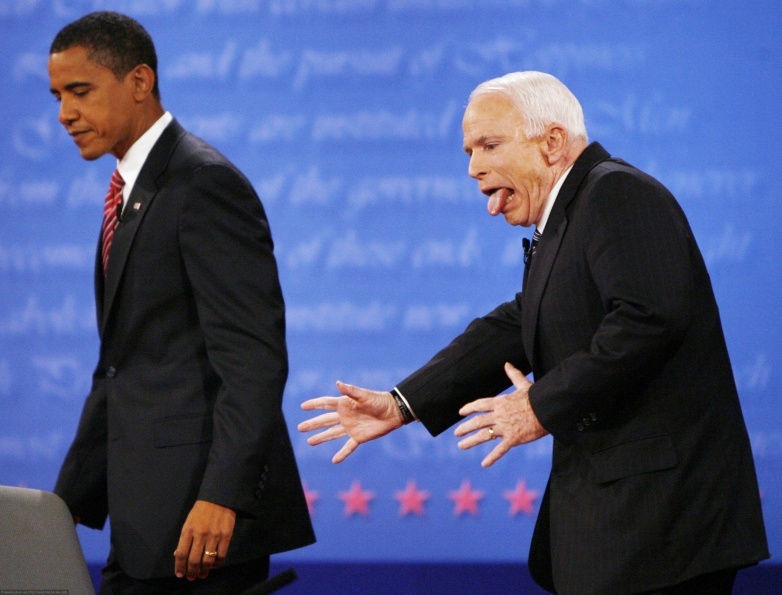
In 2001, the United States announced the emergence of network diplomacy - NetDiplomacy. The first projects of digital diplomacy were launched in the mid-2000s with the Secretary of State Condoleezza Rice, but they received special development later with the Secretary of State Hillary Clinton. In 2006, the first group of specialists (Digital Outreach Team) was formed to monitor information and misinformation about the United States. And the process has begun.
“Digital diplomacy” (digital diplomacy), the US government defines as the use of social networks in its diplomatic practice. As a form of public diplomacy, digital diplomacy has become a mechanism for influencing foreign audiences by certain methods: posting radio and television broadcasts on the Internet, distributing digital literature in open access, monitoring discussions in the blogosphere, sending information via mobile phones, creating personalized pages of government members in social networks. Existing US digital diplomacy projects are divided into 4 main areas: the creation of a youth protest movement; uniting users around American interactive radio and television; mobilization of opposition groups (dissidents); the formation of a dialogue between representatives of the US government and individual bloggers.
Today, digital diplomacy is international. Thus, the new edition of the Concept of the Foreign Policy of the Russian Federation (November 30, 2016) directly states: "... the widespread use of new information and communication technologies is expected." Although the official definition of the term “digital diplomacy” is not given, it is used in the annual reviews of the Ministry of Foreign Affairs of the Russian Federation for describing information work on the Internet. For example: "The entire toolkit of resources for" digital diplomacy "was actively involved." Accordingly, the unit within the Department of Information and Press (DIP MFA of the Russian Federation), which deals with social networks, is called the department of digital diplomacy. In general, diplomacy, which was previously a relatively “closed” field of activity, is becoming more and more open to ordinary citizens due to the development of the information society.
Returning to basics: most of all political activity moved to the Internet in the second half of George Bush Jr.’s second term (2006-2008). There were a number of scandals with viral videos on Youtube, protest bloggers appeared, methods of public investigations on the net were tried.
According to many analysts, Internet technologies have played a decisive role in the 2008-2012 election. The first election campaign of Barack Obama was built for the first time in almost equal shares offline and online. In particular, several years before the discovery of such a possibility, election debates involving TV stars began to be broadcast on Youtube on the Upstream.tv platform. In October 2008, the Democratic headquarters announced the free Obama08 application, which made it possible to organize a list of contacts on the phone so that people were divided into constituencies and they could send motivating messages.
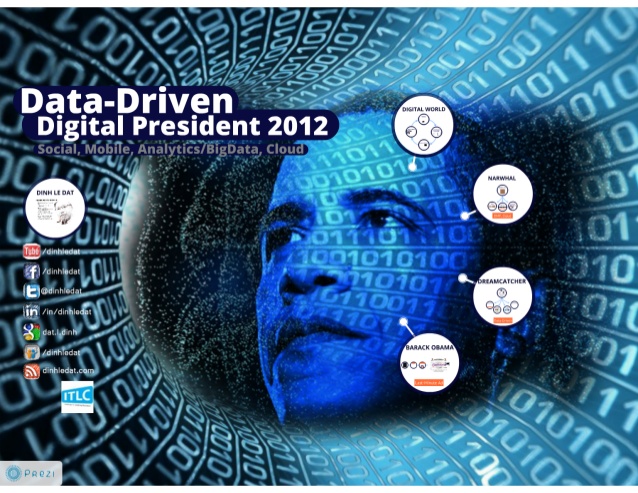
A month after his inauguration, the Obama administration decided to play direct democracy within the framework of the Open Government and opened Citizen's Briefing Book, an online book of complaints and suggestions, in which all citizens could talk about topical issues and tasks for the next election cycle. Citizens were not long in coming, and more than half of the records offered to soften the prohibitive legislation on soft drugs (which, by the way, happened after 7 years with the stormy support of voters). According to experts, it was in 2008. there was a completely digital policy.
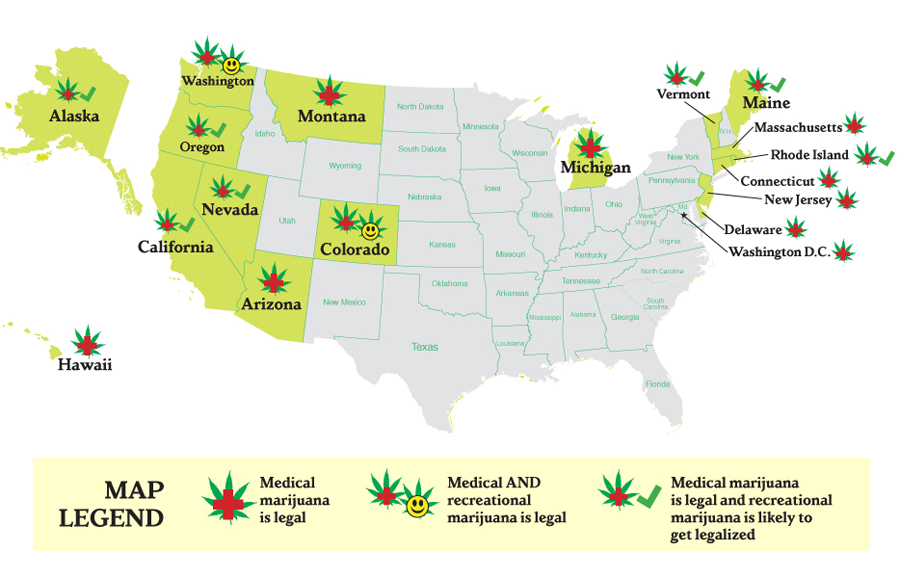
By the way, it was at this time that 15 departments were created in the State Department, the CIA, the Department of Defense and the United States Agency for International Development (USAID), which analyze international and national social networks, blogs, chat rooms, and also broadcast positive information about the United States into Internet resources. (as they say, "big hello" to all accusers of Internet interference in the internal affairs of the United States). And the incumbent Secretary of State, Hillary Clinton, initiated the program to update the US foreign policy, "Government in the 21st Century." One of its areas has become digital diplomacy.
A year later, a new US public diplomacy strategy appeared, outlined in the Public Diplomacy: Strengthening United States-World Interaction and Public Diplomacy: A National Strategic Imperative document. They outline the main tasks of digital diplomacy: discrediting ideological opponents of the United States, opposing China’s information activities on the Internet, restricting Russia's media presence in the former Soviet Union, opposing Iran’s foreign cultural policy through social networks.
Something remains incomprehensible? So, 2010. Another strategy for the development of American diplomacy was developed by the US State Department: "Strategic Plan for the Development of Information Technologies in 2011–2013: Digital Diplomacy." The first project within its framework was the creation of a special research center at Harvard University to study the political orientation of users of social networks and blogs in foreign countries.
The next project was to hold the first conference of “network dissidents” (Conference on Cyber Dissidents: Global Success and Challenges) at the G. Bush Institute in Texas in the spring of 2010. The US government invited bloggers to the conference who opposed the actions of their own governments in the areas of human rights, press freedom and the Internet. Such countries as Syria, Venezuela, Cuba, Iran, Russia, China and Colombia were represented at the conference.
The third initiative of the State Department was already aimed at creating with the help of the Internet groups of dissidents in "undemocratic" states: in the fall of 2010, a project called Civil Society 2.0 was launched, which included the unification of specialists in the field of computer technology, IT and Internet technologies with non-governmental organizations and activists in different parts of the world. Civil Society 2.0 included several programs, the most famous of which was the TechCamp project (Technology Camps) under the management of the Diplomatic Innovations Division (Diplomatic Innovation Division) in the Office of Internet Diplomacy of the State Department.
Under TechCamp, dozens of technology camps were held in more than 30 countries around the world, including Lithuania, Ukraine, Moldova, Azerbaijan and Kazakhstan, and representatives from more than 1,900 NGOs, the media and government agencies from more than a hundred countries participated. The camp is a one-day or two-day seminar, where 40 to 200 foreign activists (mostly opposition ones) are invited to listen to lectures by Western IT specialists and solve their current problems with them. The events are attended by American diplomats and potential sponsors from international foundations. Formally, the task of the congresses is to use innovations to: increase the influence of NGOs (popularize websites, promote blogs, interact with traditional media); providing security activists; and communication and coordination with US representatives. In reality, the program, as reasonably suspected by network experts, is used (in collaboration with the CIA) both to cultivate protest activity and to prepare agents of influence for waging information war and seizing power by loyal political forces in other countries.
In addition to their own programs, the State Department and USAID provide financial and political patronage to Western non-governmental organizations that specialize in protecting and training dissidents on the network: Internews, Meta-Activism Project, Mobile Accord Inc., MobileActive, New Tactics, Open Net Initiative, Tech Change, Activism Media Politics , Ashoka, etc. For example, in conjunction with the Soros Foundation and Internews, many countries around the world hold congresses of local bloggers BarCamp. In the post-Soviet space, the two-day BarCamp was first held in October 2007 in Ukraine, and then in Lithuania, Georgia, Russia, Kazakhstan, and Kyrgyzstan.
Finally, US academic and analytical centers are involved in the creation of influence groups in cyberspace. In particular, US overseas agencies, in collaboration with NGOs, are helping to search and refer foreigners for internships at the Berkman Center for Internet and Society Studies at Harvard University. According to Russian analysts, this Center was specially created to study the political orientation of users of social networks and blogs in foreign countries.
Even before the events of the “Arab Spring” of 2011, social networks as a tool for mobilizing the protest potential of young people showed their effectiveness in Colombia and Mexico - with their help, demonstrations were organized against the terrorist movement FARC and the drug mafia, as well as in Iran and Moldova, where a wave of street protests against election results.
In the spring of 2011 in Tunisia and Egypt, groups of young people were mobilized for mass demonstrations using the Internet and mobile communications, and the information circulating on the network served as a catalyst for the growth of protest moods. It is known that 70% of Twitter messages (tweets), relating, for example, to the “revolution” in Egypt, were posted from IP addresses located outside this country. The latter confirms the version of external information interference in the course of the “Arab spring” and is not particularly hidden. In June 2011, at a speech in London, adviser to H. Clinton on innovation A. Ross told the audience that the importance of the Internet in undermining authoritarian regimes in the Arab East was decisive.
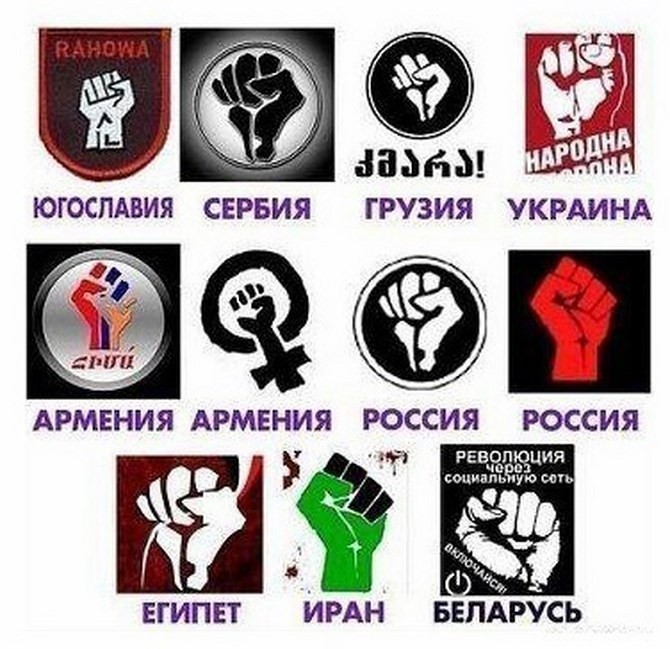
American social networks also played a key role in inciting opposition supporters to acts of civil disobedience in Turkey in June-July 2013. According to measurements by the Turkish company eBrandValue, which monitors the national segment of the Internet, the ratio of Twitter subscribers who called to join the protesters on Taksim Square in Istanbul , and those who spoke in support of the current government of Erdogan, amounted to 68 thousand to 800.
By the way, the preparation of Internet bayonets is supported by appropriate tools. For example, in 2012, the application “InTheClear” was developed - a kind of alarm button that instantly deletes contacts and messages from the phone of a dissident in the event of his arrest and sends a warning to his associates.
In 2011, at the initiative of the United States and the United Kingdom, an Open Government Partnership (OGP) was established. Participants undertake expanded disclosure obligations on the activities of national governments and, in particular, their budgets. Information disclosure is carried out using software and computer infrastructure offered by Western corporations, and control over compliance with the obligations lies with non-governmental organizations. These factors increase the technical and political dependence of the member states on the initiators of the partnership. Managed by the OGP Steering Committee, consisting of representatives from the United States, the United Kingdom and several other countries, as well as international NGOs with a dominant role of the Soros Foundation and its affiliated structures. In addition to state contributions, it is funded by contributions from American IT giants (Google, HP, eBay), the Soros Foundation, and the Ford Foundation. Many experts in Russia and abroad view OGP as an attempt to link the globalized process of informatization of national governments to the international structure under the control of the United States. Including for these reasons, the major European powers (France, Germany) are still not participating in the organization, and Russia withdrew the application for accession in May 2013.
A similar scheme has been applied in another international structure - the Extractive Industries Transparency Initiative (EITI, Extractive Industries Transparency Initiative). The de facto EITI is an international organization headquartered in Norway, created in accordance with the idea of British Prime Minister Tony Blair about the duty of resource-rich countries to disclose information about the extractive industries.
In July 2012, the French agency AFP launched the publication of the world's first rating (E-diplomacy Hub), partially reflecting the effectiveness of states in the area of, if not confrontation on the Web, then in the area of capturing a potential client base. In the first place of the 152 countries with a large margin are the United States, Twitter accounts which are signed by about 100 million people. Further, with a large margin followed by Turkey, Saudi Arabia, Egypt, India, Kuwait, Venezuela, Colombia, Mexico and the United Kingdom. Russia ranks 13th with an indicator almost 10 times smaller than the United States. Among individual microblogs, the resource of US President Barack Obama (about 40 million people) is leading by a large margin. The most popular Russian account was in 26th place and belonged to the Chairman of the Government of the Russian Federation Dmitry Medvedev (about 2 million people).
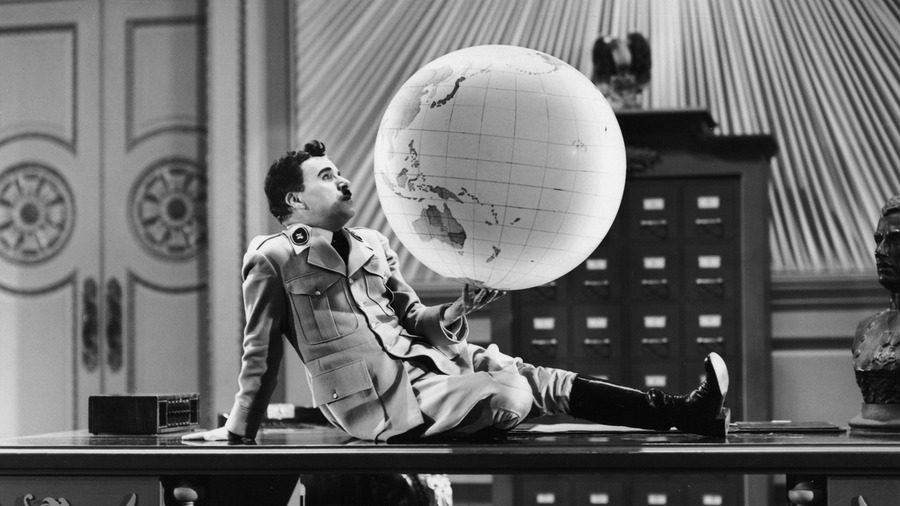
Sometimes diplomacy is conducted by “other means”, so it remains to add to the above that the widespread use of ICT, in particular social networks, opens up the prospect of using them to collect military and intelligence information. For example, make the fool catch Pokemon, and he will do it - from his bed and right up to some strategic objects. And the information taken by him will go “where it is necessary”. I remember the phrase: “It’s good to be a rabbit - you multiply for your own pleasure and don’t know that you are just being bred”.
In 2011, the United States adopted a number of documents affecting the military-political aspects of the development of the Internet, and partly published the Pentagon’s “Strategy for Cyberspace Actions”, in which cyberspace was already considered as a space for conducting combat operations along with land, sea and air, and also outer space. From the above, it is generally clear how this will happen. Take, for example, the so-called network wars, which are a method of waging war that allows to achieve results - to occupy the state, to put it under full strategic control, to manage this state, to exploit it in their own interests, without using the classical form of capture by military means. There is no visible external occupation, no elements of external aggression. Everything happens at the level of remote formation of contexts, meanings and sudden "insights" in citizens. This technology has been so well and long since practiced and so massively used that, judging by the latest public appearances, even its authors began to forget who and why all this was invented. It just seems to them that this has always been the case and that this is exactly what should be done.
Before the start of the network war, you need to cover the enemy’s territory with a network, to “network” it (there is such a concept among the specialists - to network). It should be noted that network warfare is not only and even not so much the technology of confrontation on the Internet, as it is often considered. The Internet is only one aspect, a particular manifestation of the network environment, its ideal model. Outside it, offline, is any environment consisting of “atomic” individuals, preferably carriers of a network world outlook, maximally liberated, that is, not limited by any conditions, prohibitions, norms, taboos, obligations, beliefs, traditional attitudes, etc. These are people, environments, non-profit organizations, artificial structures, interest groups that are collected for specific, momentary tasks, and through which you can skip a particular code in the form of fairies news or mental preparation of the population with the help of the corresponding “warming up” content. By the way, a single member of one such network can simultaneously be a member of many other similar networks. It is important to “program” them in one meaningful way or another, to fill them with the content needed by a specific customer. And then - to use in artificially formed environments, which are arranged according to the needs of the one who wages a network war. However, all this was well known several years ago.
Specialists did not have time to get used to Industry 4.0, as in the spring of 2017 at CeBit in German Hanover there was a new “brain explosion” in the digital direction when Japanese Prime Minister Shinzo Abe presented his project Society 5.0 (Society5.0) . The basic idea is to put new technologies at the service of society, introduce them into all spheres of life, optimizing life, business activities, more effectively address the problems of the aging population, care for people with disabilities, and learning. Moreover, Japanese scientists in the framework of Society 5.0 began the development of artificial intelligence (AI), which should be responsible for the work of parliament and even help government members develop bills.

Now it is possible to organize a virtual republic in reality, each citizen of which will make some payments for the common cause, either in the form of voluntary donations or as a fixed percentage of their financial network transactions, and have exactly as many political rights as he “bought ". Want more - buy more! And make decisions. Bear responsibility for them. That is, what was impossible to realize for thousands of years - taking into account the exact contribution of each citizen to the common cause and the proportional distribution of voting rights - becomes a reality in the digital age. Someone even tries to prove that the AI, having loaded itself with politics and the economy, will be able to overcome the omnipresent corruption and even build a “just society”. True, that which will be “on the mind” of the AI in terms of justice, we may not know.
I would like to add to the conclusion, and in health, that, most likely, technology alone will not be enough for digital political and economic success. In any case, while there are still people on the planet with their heads on their shoulders. By the way, do not forget to check your head ...
Publication author: Alexander Golyshko, Ph.D., systems analyst at Technoserv Group of Companies
Based on: radio.ru, riss.ru, eurasian-defence.ru, www.cl.cam.ac.uk, russiancouncil.ru, svop.ru, www.makebecool.com, russianinterest.ru, vz.ru
')
Source: https://habr.com/ru/post/352728/
All Articles